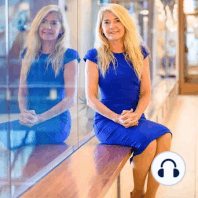19 min listen

Episode #85. Are you addicted to processed food, chicken breasts, the Western diet, what it is and what you can do about it with Dr Robert Lustig
Episode #85. Are you addicted to processed food, chicken breasts, the Western diet, what it is and what you can do about it with Dr Robert Lustig
ratings:
Length:
69 minutes
Released:
Apr 8, 2022
Format:
Podcast episode
Description
Join us today, learn all about how the western diet is making us unhappy, unhealthy, and weak. Dr Robert Lustig is a pioneer and advocate, author of "Fat Chance" and "Metabolical". You can learn more at his website and links below.Addicted to the western diet.Dr Lustig discusses on the podcast that certain foods — “hyperpalatable foods” — particularly processed foods that are high in sugar, salt and fat can be addictive. Food addiction is still a controversial concept in the scientific community. But researchers find strong evidence that certain foods can trigger binging, craving and withdrawal, responses that are similar to those produced by addictive substances like alcohol, cocaine and tobacco.Dr Lustig discusses that "Non-communicable diseases (NCDs) account for about 50% of the global disease burden and some 75% of total health-care spending. The role of processed foods in these chronic conditions is undisputed; every country that adopts the high-fat, high-sugar “Western pattern diet” is plagued by the same diseases and costs. But the big question for health professionals is whether the quantity or the quality of foods is to blame. This is an important distinction, because quantity is determined by the user, while quality is determined by the industry.Some health experts argue that specific components of processed foods – in particular, sugar – are as addictive as cocaine and heroin. For example, sugar is consistently the ingredient with the highest score on the Yale Food Addiction Scale, which measures people’s food cravings.Not everyone who is exposed to sugar becomes addicted; but, as with alcohol, many do. While refined sugar is the same compound found in fruit, it lacks fiber and has been crystallized for purity. It is this process that turns sugar from a “food” into a “drug,” allowing the food industry to “hook” unsuspecting consumers. The evidence is visible in every aisle of every grocery store, where a staggering 74% of all food items are spiked with added sugar. In fact, sugar’s allure is a big reason why the processed food industry’s current profit margin is 5% (up from 1%), and why so many of us are sick, fat, stupid, broke, depressed, and just plain miserable".Dr. Robert Lustig is Professor of Pediatric Endocrinology at the University of California, San Francisco. Dr. Lustig has become a leading public health authority on the impact sugar has on fueling the diabetes, obesity and metabolic syndrome epidemics, and on addressing changes in the food environment to reverse these chronic diseases.In his New York Times best selling book Fat Chance: Beating the Odds Against Sugar, Processes Food, Obesity, and Disease, Robert documents both the science and the politics that have led to the current pandemic of obesity and chronic disease. In the Fat Chance Cookbook, Robert provides practical examples for applying healthy eating principles with recipes by Cindy Gershen.Dr. Lustig is a neuroendocrinologist, with basic and clinical training relative to hypothalamic development, anatomy, and function. Prior to coming to San Francisco in 20Support the show (https://www.patreon.com/selenab)
Released:
Apr 8, 2022
Format:
Podcast episode
Titles in the series (100)
Episode #4: Rewiring the brain. How to kickstart neuroplasticity. by THRIVING MINDS PODCAST